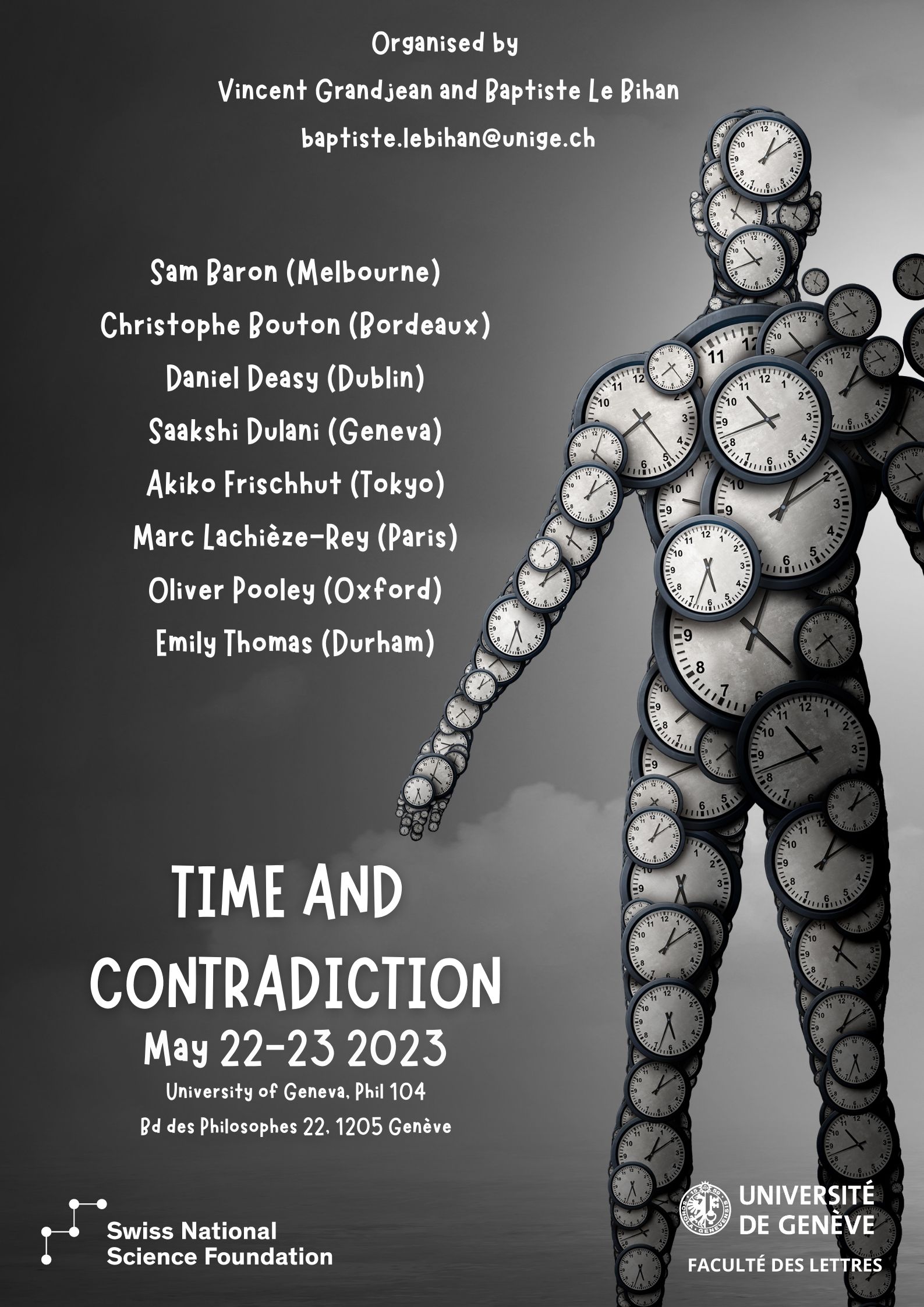Time relates to contradiction in several ways. In the early 20th century, McTaggart argued that the traditional conception of the passage of time led to contradictions: each event seems to have contradictory properties of being future, present, and past. Some debates in metaphysics about the nature of change and becoming, together with dialetheism, explore whether there may be genuine non-pathological contradictions, and how they may play a role in our conception of time. For example, a book’s changing involves the contradictory properties of being open and being shut. Theories of persistence generally aim at reconciling this contradiction with reality’s coherence – unless it is precisely coherence that must be abandoned. On the physics side, relativistic physics suggests that the concept of time does not exist fundamentally and that it must be replaced by a four-dimensional spacetime, while recent developments in quantum gravity suggest that even this spacetime might fail to be fundamental. The physics of black holes, with the paradox of information loss, suggests that two contradictory conceptions of time prevent a proper understanding of the fundamental nature of reality.
Program
Program
Day 1: May 22
- 10:15am - 11:15am: Christophe Bouton (Bordeaux): Time and Contradiction from Hegel to McTaggart
- 11:30am - 12:30pm: Marc Lachièze-Rey (Paris): Classical and Quantum relativistic temporal Effects
- 2:00pm - 3:00pm: Daniel Deasy (University College Dublin): Remember that one time
- 3:00pm - 4:00pm: Oliver Pooley (Oxford): Relativity, relativism, and the invisible thin red line
Day 2: May 23
